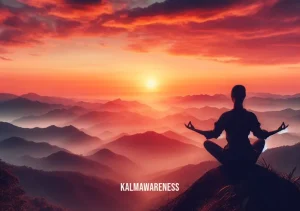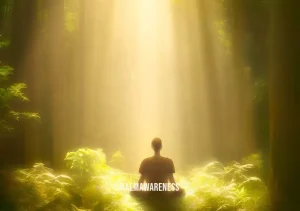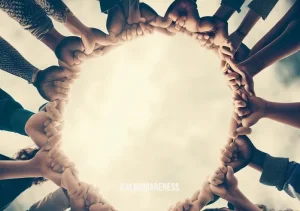The Rise of Master’s Degrees in Mindfulness: More Than a Trend, A Paradigm Shift
In an era where stress and anxiety often rule the day, people are increasingly turning to mindfulness practices to find balance. From incorporating mindful movement into sleep routines to utilizing mindful hypnobirthing techniques, society has begun to fully embrace the holistic benefits of mindfulness. Yet, as interest in mindfulness and meditation surges, so does the need for qualified instructors and experts in this field. This trend marks the emergence of advanced academic pathways, such as a Master’s Degree in Mindfulness, as instrumental for those aiming for career advancement in this area.
The Intersection of Education, Mindfulness, and Graduate Studies
A Master’s Degree in Mindfulness is an interdisciplinary course of study that combines aspects of psychology, education, and spirituality. Unlike a casual pursuit of sustainable self-care, this advanced degree program delves into evidence-based approaches. It equips graduates with the tools they need to facilitate mindfulness experiences effectively, from teaching how to stabilize the mind during stressful situations to guiding individuals through elemental meditation exercises.
Personal Growth Through Academic Rigor
Personal growth is often cited as one of the primary reasons individuals decide to pursue a Master’s Degree in Mindfulness. According to experts, a profound understanding of the mind-body connection can help an individual train the mind to be stronger than feelings. This can be a powerful asset, not just for career development but also for overall well-being. To gain such a comprehensive understanding, students engage in a variety of learning techniques:
- Theory and History: Understanding mindfulness from the perspective of different cultures and philosophies.
- Applied Mindfulness: Exercises in rousing yoga and other mindful movement activities.
- Experiential Learning: Participating in Jack Kornfield’s meditation for beginners to more advanced levels of meditation.
- Research: Investigating new methods and contributing to the meaning of mindfulness in a contemporary context.
The Career Landscape for Mindfulness Graduates
As mindfulness becomes a staple in various settings, from educational institutions to corporate workplaces, the career opportunities for individuals with a Master’s Degree in Mindfulness have also expanded. A graduate can find roles as a:
- Mindfulness Educator: Teaching students of all ages about the practice, which can include guiding teenagers through walking meditations.
- Corporate Wellness Advisor: Implementing mindfulness programs in a corporate setting.
- Mindfulness-Based Therapist: Assisting clients in mental health settings.
- Researcher: Contributing to a more in-depth understanding of mindfulness and its benefits for mental peace.
“Mindfulness isn’t just a practice. It’s a way of life that necessitates an understanding deeper than casual contemplation. A master’s degree in mindfulness equips you with that depth of knowledge.” – Unknown Mindfulness Expert
Why You Should Consider This Pathway
Investing in a Master’s Degree in Mindfulness is not just about career advancement; it’s also about personal growth. Engaging in this higher education pathway encourages you to meditate deeply, reflecting not just on the world around you but also on your inner self. It opens doors to effective techniques like gratitude meditation for sleep, which can be a life-changing practice for both you and your future clients.
Are you intrigued by the potential of turning mindfulness into a rewarding career and fulfilling life journey? You may be wondering about the practical aspects of pursuing this advanced degree. Stay tuned as we delve into the specific coursework, faculty expertise, and admission requirements in the next segment.
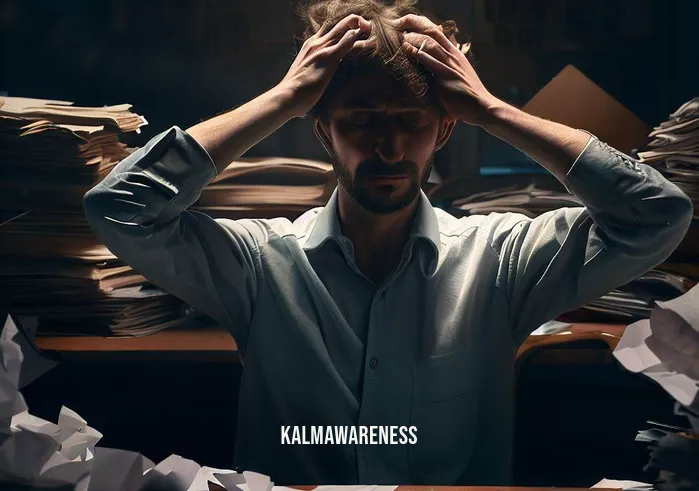
Master’s Degree in Mindfulness: What’s On the Curriculum?
After considering the benefits and career prospects of a Master’s Degree in Mindfulness, the next logical question is: what does the program entail? To quench your curiosity, this segment focuses on the specific coursework that makes this graduate-level education both challenging and enlightening. By diving into the curriculum, you’ll gain insight into how this degree goes beyond mere judgement of the wise and delves deeply into evidence-based practices and research.
A Multi-Disciplinary Approach
One of the most striking features of this degree program is its multi-disciplinary nature. While you might have engaged in can u meditate lying down, this program takes you through a much more structured and scientific approach. You’ll explore various practices, from mirror-gazing for spiritual benefits to research methods in the science of mindfulness.
Key Subjects to Expect
- Theoretical Frameworks: Dive into the philosophies underpinning mindfulness from Eastern and Western perspectives.
- Ethical Implications: Examine the ethical considerations of teaching mindfulness practices.
- Mindfulness Research: Study the existing body of research and also engage in your own.
- Advanced Meditation Techniques: Take your meditation made simple skills to the next level.
- Mindfulness in Special Settings: Learn to apply mindfulness practices in different settings, such as schools or corporate environments.
Structuring Your Course Load: An Overview
To give you an idea of what to expect, let’s look at a table that breaks down a sample curriculum for a Master’s Degree in Mindfulness:
| Semester | Core Courses | Electives |
|---|---|---|
| Fall | Theoretical Frameworks in Mindfulness | Mindfulness in Schools |
| Spring | Research Methods in Mindfulness | One for Each Blessed Day: Daily Practices |
| Summer | Ethical Implications in Mindfulness Teaching | How to Touch That Body Part Mindfully |
| Fall | Advanced Meditation Techniques | Pretty Soon: Managing Time Mindfully |
| Spring | Capstone Project | Mindfulness in Trauma Recovery |
The program offers an eclectic mix of core subjects and electives, allowing you to customize your learning journey to some extent.
The Importance of Professional Development
Acquiring a Master’s Degree in Mindfulness is not merely an academic exercise; it’s a significant leap in your professional development. Unlike an amateur practitioner who might only be focusing on the ‘here and now,’ a graduate in this field is equipped to provide mindfulness training in a variety of professional settings.
“The curriculum of a Master’s Degree in Mindfulness is designed not just to inform but to transform. It prepares you for an expansive career trajectory while promoting profound personal growth.” – Academic Advisor
The Specialization Track
For those who want to specialize, there’s often an opportunity to delve deeper into areas such as:
- Child and Adolescent Mindfulness: This is especially useful for those interested in working with teenagers.
- Corporate Mindfulness: Focuses on time management and stress reduction in fast-paced environments.
- Mindfulness and Mental Health: Gain the skills to incorporate mindfulness in mental healthcare settings.
What’s Coming Up in Chapter 3
We’ve covered the importance and structure of the curriculum involved in obtaining a Master’s Degree in Mindfulness. But what is it like to be a student in such a transformative program? How can you prepare yourself for this academic and spiritual journey? In the next chapter, we will meet some alumni who share their firsthand experiences, shedding light on the personal and professional transformations they underwent during and after the program. Stay tuned!
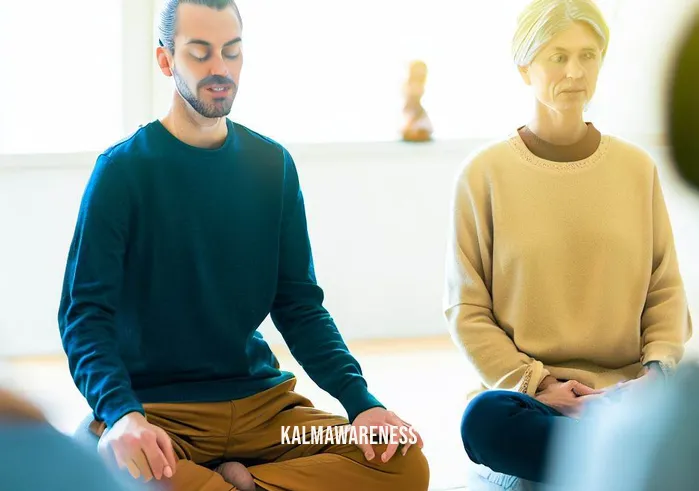
Finding Your Muse: Transformative Stories from a Master’s Degree in Mindfulness
Inspiration often serves as the gateway to action. In the world of mindfulness education, specifically a master’s program in this field, real-life stories serve as potent catalysts for both enrollment and rigorous study. This chapter centers around the hope and inspiration that a Master’s Degree in Mindfulness can bring into your life—impacting not just you, but also those around you. Let’s explore some transformative tales that might nudge you towards this unique academic and spiritual pursuit.
Alumni Stories: The Human Aspect of Mindfulness Studies
While academic curricula and career prospects are essential factors in considering a postgraduate program in mindfulness, it’s the transformative power of the course that often attracts people the most. These stories encapsulate what Jack Kornfield refers to when he talks about Meditation for Beginners; it’s about planting the seeds of inner peace and watching them grow into a tree of wisdom and compassion.
“This Course Helped Me Train My Mind to Be Stronger Than My Feelings“
“My journey through the master’s program was profound. I learned not only how to stabilize my emotions but also to channel them productively in my professional life. It taught me the value of equanimity.”
“Mindfulness Became My Element of Some Meditation Exercises“
“The skills I acquired during my time in the program allowed me to create meditation modules that are now part of corporate wellness programs worldwide. The feeling of making a global impact is indescribable.”
“My Path to Sustainable Self-Care Started Here”
“The course didn’t just teach me how to take care of myself; it taught me how to sustain it. Mindfulness became more than a practice; it became a lifestyle.”
The Ripple Effect: Inspiring Others through Your Journey
The master’s program in mindfulness isn’t just a milestone in personal growth; it’s a leap in becoming an agent of change in the community. Whether you become an educator, a corporate trainer, or a therapist, the skills you gain have the potential to involve attaining a peaceful state of mind in which thoughts are not occupied by worry—not just for yourself, but for those around you.
“When you find peace within yourself, you become the kind of person who can live at peace with others.” – Peace Pilgrim
A Journey Back to Oneself: The Ultimate Benefit
Perhaps the most incredible aspect of this program is the self-discovery it catalyzes. As you go through rigorous coursework and training, you’ll learn more than just techniques; you’ll learn about yourself. Your capabilities, your boundaries, and even your limits will all come into focus. As one alumni stated,
“The program gave me the tools to not only understand the world around me but also the complex universe within me. It was like learning how to spell stabilize for my fluctuating thoughts and emotions.”
Gearing Up for Chapter 4
Thus far, we’ve delved into the benefits, curriculum, and inspirational stories related to obtaining a Master’s Degree in Mindfulness. Now, what are the steps you can take to enroll in such a program? What are the prerequisites, and how can you prepare yourself for this transformative journey? In the upcoming chapter, we will look at the practical aspects, providing you with a roadmap for admission into a Master’s program in mindfulness. Stay tuned!
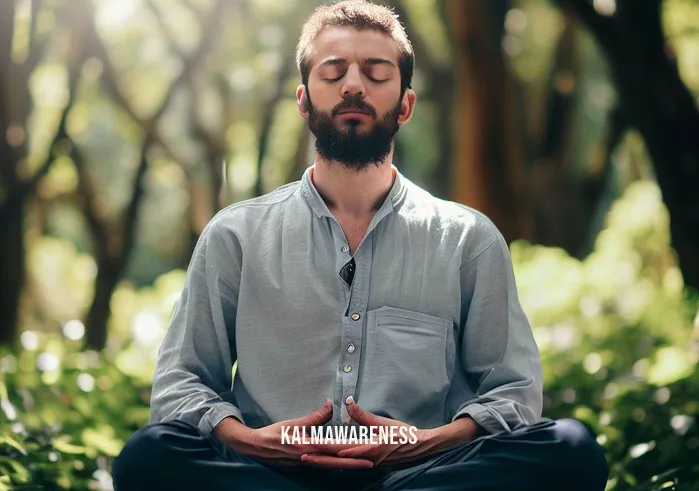
A Guided Path: Navigating the Prerequisites and Curriculum for a Master’s Degree in Mindfulness
So, you’re inspired. The stories have moved you, and the transformative potential of a Master’s Degree in Mindfulness beckons. But where does one start? How does one navigate the labyrinth of admission requirements, curricula, and course modules? This chapter aims to break it all down for you, paving a clear path toward your advanced studies in mindfulness.
Stepping Stones: Admission Requirements
Before you begin your journey, it’s crucial to know what the admission boards are looking for. In most instances, there are some standard prerequisites for enrollment into a postgraduate mindfulness program.
- Bachelor’s Degree: Preferably in Psychology, Social Work, or a related field. However, many programs are open to degrees in other disciplines if you can demonstrate a strong interest or background in mindfulness.
- Work Experience: Some programs may require at least two years of relevant work experience.
- Personal Statement: This is often your chance to make a strong case for your admission. Emphasize your passion for mindfulness and how you envision gratitude as a means of achieving better sleep.
- References: Academic and professional references can boost your application significantly.
The Curriculum: Where Mind Meets Heart
Once you’re in, what can you expect to study? Here’s an overview of the subjects often covered:
- Fundamentals of Mindfulness: Learning the one technique for each blessed day is how you start.
- Mindfulness in Education: This subject may include modules that teach you how to engage teenagers in walking mindfulness exercises.
- Mindful Movement and Physicality: Delve into practices like Rouse Yoga to explore the mind-body connection.
- Advanced Meditation Techniques: This involves breathing and other meditation exercises for deeper awareness.
- Ethics and the Mindfulness Practice: This topic often covers the judgement of the wise in the realm of mindfulness.
Teaching Methods: Not Your Usual Classroom
In a master’s program focused on mindfulness, the teaching methods used are often as diverse as the subjects themselves. Courses might include:
- Interactive Workshops
- One-on-One Mentoring
- Virtual Reality Mindfulness Exercises: An emerging trend that helps involve you in attaining a peaceful state of mind.
- Fieldwork: Practical training in various settings such as schools, hospitals, and corporations.
- Self-Study: Often includes meditation made simple techniques.
The Final Chapter Awaits: Where Does Your Path Lead?
We’ve covered a lot of ground—from understanding what a Master’s Degree in Mindfulness entails to decoding its prerequisites and curriculum. Now, it’s time to take all this knowledge and ponder the essential question: Where does your personal and professional path lead in the realm of mindfulness?
In the final chapter, we will discuss the various career paths one can take after obtaining a Master’s Degree in Mindfulness. We will also explore some final thoughts and inspirations to take with you on this transformative journey. Don’t miss it!

The Mindful Milestone: Reflecting on the Journey to a Master’s Degree in Mindfulness
As our exploration of a master’s degree in mindfulness comes to an end, we can’t help but pause and reflect. It’s not just about the technicalities of the coursework or the thrill of career opportunities— it’s a transformative inner journey that redefines personal growth, sustainable self-care, and life satisfaction. So let’s wrap things up with a look back at the ground we’ve covered and the seeds of mindfulness we’ve planted along the way.
The Boundless Horizon: More Than Just a Degree
What makes this educational pursuit truly unique is its applicability to every aspect of life. From boosting your mental strength to deepening your relationships, the ripple effect of a postgraduate degree in mindfulness is profound. This education goes beyond the four walls of academia; it teaches you to keep the essence of mindfulness in mind throughout your personal and professional journey.
A Glimpse in the Mirror: Personal Insights
Perhaps one of the most unexpected blessings of this academic journey is the gift of self-awareness. Courses like mirror gazing aren’t just spiritual indulgences; they are windows into the self. They encourage us to ask, “Who am I when I’m not reacting, analyzing, or problem-solving?”
A Newfound Sense of Peace
Let’s not forget the incredible techniques we’ve learned for calming the mind. Be it through hypnobirthing or meditating in unconventional ways like lying down, the peace attained has been of a different kind. It’s a peace rooted not in detachment from the world, but in a richer, deeper engagement with it.
Next Steps: Your Mindfulness Manual
The pages of this magazine have been a guide, but they’re also just the start. If you’ve been inspired by what you’ve read, why not deep dive into our extensive archive? For example, discover the nuances of how you can get deep into mindfulness so fast or learn from the expert tips of Jack Kornfield. We have a plethora of resources that can be your toolkit for a mindful life.
A Hearty Thank You
We’ve journeyed through the what, why, and how of obtaining a master’s degree in mindfulness. We looked at the importance of being in touch with oneself and extending that touch to different parts of your body for complete awareness. We also took a deeper look into making this practice a stable part of your life.
Thank you for being with us every step of the way. Your engagement and curiosity drive us to delve deeper, explore farther, and bring you even more enriching content in our future editions.
Your Mindful Future Awaits
So here we are, at the threshold of what could be a life-altering decision. Opting for a master’s program in mindfulness isn’t just another academic endeavor; it’s akin to picking up the pen and rewriting your life script with a deeper understanding, higher emotional intelligence, and an unwavering sense of peace.
Are you ready to take that step?
Until our next issue, keep cultivating your inner world as diligently as you navigate the outer one. Thank you for reading, and remember: mindfulness isn’t just something you do; it’s a way of being.


